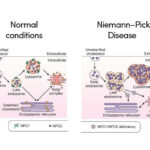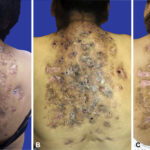nighttime sleep disturbance: Smith-Magenis Syndrome (SMS) is a rare genetic disorder characterized by developmental delays, behavioral abnormalities, and distinct sleep disturbances. A hallmark feature of SMS is nighttime sleep disruption, primarily due to an inverted circadian rhythm and abnormal melatonin secretion patterns. Individuals with SMS experience severe difficulty falling and staying asleep, leading to daytime drowsiness and exacerbation of behavioral challenges. Understanding the underlying mechanisms and effective management strategies is crucial in improving the quality of life for individuals with SMS and their caregivers.

The Role of the Circadian Rhythm in SMS Sleep Disturbances
Understanding the Circadian Disruption
- The circadian rhythm regulates the sleep-wake cycle and is controlled by the suprachiasmatic nucleus (SCN) of the brain.
- In SMS, the melatonin secretion cycle is reversed, leading to increased daytime melatonin and a lack of melatonin at night, causing sleep fragmentation.
Underlying Genetic Cause
- SMS results from a deletion or mutation of the RAI1 gene on chromosome 17p11.2.
- RAI1 plays a role in regulating sleep, metabolism, and neurological functions, explaining the profound sleep disturbances in affected individuals.
Symptoms of Nighttime Sleep Disturbance in SMS
1. Difficulty Falling Asleep
- Individuals with SMS struggle with prolonged sleep onset latency due to improper melatonin release timing.
2. Frequent Nighttime Awakenings
- Even after falling asleep, frequent spontaneous awakenings disrupt sleep continuity.
- Self-injurious behaviors and nighttime wandering are common during these episodes.
3. Excessive Daytime Sleepiness (EDS)
- Due to fragmented nighttime sleep, individuals experience severe daytime drowsiness, affecting cognition and mood.
4. Behavioral Consequences
- Sleep deprivation worsens irritability, aggression, hyperactivity, and impulsivity.
- Attention deficits and learning difficulties become more pronounced.
5. Sleep-Related Breathing Disorders
- Studies indicate a higher prevalence of obstructive sleep apnea (OSA) in SMS, further contributing to poor sleep quality.
Diagnosis of SMS-Related Sleep Disorders
1. Clinical Sleep History
- Assessment of bedtime routines, sleep duration, and frequency of awakenings.
- Reports from caregivers documenting nocturnal behaviors and daytime sleepiness.
2. Actigraphy and Polysomnography
- Actigraphy: Wrist-worn sleep monitors track activity levels and sleep-wake cycles over multiple nights.
- Polysomnography (PSG): Overnight sleep studies assess brain activity, breathing patterns, and movement abnormalities.
3. Melatonin Profiling
- Measurement of melatonin levels in saliva or urine across 24 hours confirms circadian misalignment.
Treatment and Management of Nighttime Sleep Disturbance in SMS
1. Melatonin Therapy
- Exogenous melatonin supplementation at night helps correct sleep initiation problems.
- Timed morning bright light therapy can suppress daytime melatonin production and restore the natural sleep-wake cycle.
2. Behavioral Sleep Interventions
- Consistent bedtime routines with structured evening activities to encourage relaxation.
- Avoidance of stimulating activities (screen time, loud noises) before sleep.
3. Medications for Sleep Regulation
- Melatonin receptor agonists (e.g., ramelteon) mimic natural melatonin effects.
- Sedatives (e.g., clonidine or trazodone) may be prescribed for persistent insomnia, though they should be used cautiously.
4. Managing Sleep Apnea and Breathing Issues
- Continuous positive airway pressure (CPAP) therapy is beneficial for individuals with SMS who experience obstructive sleep apnea.
- Weight management and upper airway evaluation may help address breathing difficulties.
5. Environmental Modifications
- Weighted blankets and white noise machines provide sensory comfort, reducing nighttime restlessness.
- Bedroom safety adaptations (locked doors, padded furniture) prevent nighttime injuries.
Impact on Caregivers and Family
1. Emotional and Physical Strain
- Caregivers experience chronic sleep deprivation due to nighttime disruptions.
- Increased stress, anxiety, and burnout are common among parents of SMS children.
2. Strategies for Caregiver Support
- Respite care and support groups offer emotional relief and practical assistance.
- Sleep training and behavioral therapy resources can help families implement effective interventions.
Ongoing Research and Future Treatments
1. Chronotherapy and Light-Based Interventions
- Studies explore targeted light therapy and controlled exposure to darkness to realign circadian rhythms.
2. Gene Therapy Prospects
- Research on RAI1 gene function aims to develop potential gene-targeted treatments for SMS-related sleep disturbances.
3. Pharmacological Advances
- Development of long-acting melatonin analogs and circadian rhythm modulators could improve long-term sleep management.
Nighttime sleep disturbance in Smith-Magenis Syndrome is a complex, genetically driven disorder that severely impacts sleep quality and overall well-being. The reversal of melatonin cycles, frequent nighttime awakenings, and associated behavioral challenges make early diagnosis and tailored intervention essential. While current treatments focus on melatonin regulation, behavioral strategies, and environmental modifications, ongoing research holds promise for more effective long-term solutions. Support for caregivers remains critical in managing the profound impact of SMS-related sleep disturbances.

